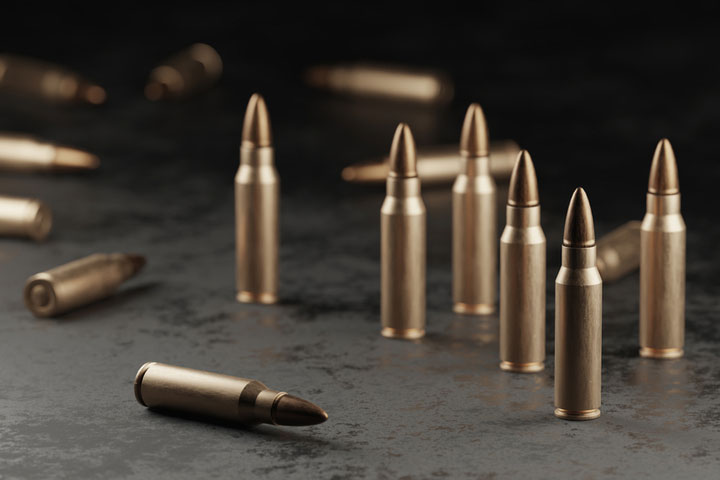The Basic Principles Of Ammunition Pro Llc
The Basic Principles Of Ammunition Pro Llc
Blog Article
Ammunition Pro Llc for Beginners
Table of ContentsThe Ultimate Guide To Ammunition Pro LlcSome Known Questions About Ammunition Pro Llc.What Does Ammunition Pro Llc Mean?Getting My Ammunition Pro Llc To WorkThe Basic Principles Of Ammunition Pro Llc
The standard components of ammunition coincide for rifle, gun, and shotgun ammunition. Understanding how ammo works is a crucial aspect in being a liable gun owner. Today we're checking out the what the basic components of ammo are and how they interact to terminate a round. The standard components of ammo revealed on a 9mm. Online Ammunition Store round.The bullet is seated in the open end of the situation. When you terminate a bullet out of a semi-auto gun, the gun's extractor raises the instance from the firing chamber and it flies out of the gun.
A gun's firing pin strikes a cartridge's guide. The guide is a metal mug that holds an explosive chemical substance. When the firing pin strikes the guide cap, it crushes the priming substance against the anvil. This creates a tiny explosion in case that stirs up the propellant. The primer lies in the edge of the situation of a rimfire cartridge.
3 Simple Techniques For Ammunition Pro Llc
Gunpowder next to the case that normally contains it. It is usually a mixture of saltpeter, charcoal, and sulfur.

We call the projectiles for shotshells, which we discharge via shotguns, slugs and shot. Currently that you have a standard understanding of the fundamental parts of ammunition, you can feel a bit more certain in how your weapon and ammo function!.
The Ultimate Guide To Ammunition Pro Llc
Stay on top of Special Deals, Development Notice of Sales, and Store Occasions
Fun fact: Grains are used to explain the mass of a bullet due to the fact that right back in the early days of firearms, it was an apothecary's device of measurement, and a common denominator was needed to figure out how much result in make use of to make cast lead bullets (Online Ammunition Store). 'Grains' as a system of procedure for weight goes all the method back to ancient times, and represents the weight of a grain of wheat

(https://celestialdirectory.com/gosearch.php?q=Ammunition+Pro+LLC&search-btn.x=2&search-btn.y=7)For recommendation, the weight of a paper clip is around 16 gr. So, we know that grains are a step of mass, and a lot more = much heavier, and heavy is great, ideal? Yes, heavy is great, but mass of the projectile isn't the only thing you require to consider when choosing a round for your firearm.
Ammunition Pro Llc for Dummies
Fun reality, this is the beginning of the term "Rifle" ex. The result this spin has on projectiles is a supporting one the bullet rotating maintains the nose directed right, in the same method that a perfectly spiraled football toss is going to be a lot a lot more steady and exact in flight than a hideous duck, end over end throw.
How does this relate to grain weight? Picture you're on one of those play ground carousels, the ones with bars you hold on to while it rotates.
Or in the situation of the circus trip, you start to really feel larger. The even more mass you have (weight), the much more you will feel this impact. The same effect occurs with bullets. The much heavier the projectile, the even more effect a much faster spin will certainly have on it. This is why you often tend to see slower spin rates for larger, slower projectiles, and faster twist prices for lighter, higher velocity projectiles.
The 30-Second Trick For Ammunition Pro Llc
There's one more variable that we have to take into consideration when selecting a grain weight for our ammunition. As meant above, bullet velocity, or the speed of the projectile, is a major element when figuring out the ideal grain weight projectile to make use of. Rate is influenced by a few major factors, including the type and amount of propellant (gunpowder), barrel length, and bullet weight.

One of the most common grain weight rounds for 9x19mm cartridges are 115gr and 124gr. These are commonly lead core, completely jacketed (FMJ) rounds. Both of these grain weight cartridges will do well in manufacturing facility 9mm pistols, to normal handgun ranges (as much as 50 backyards). 115 grain rounds are one of the most common (and for that reason least pricey).
Report this page